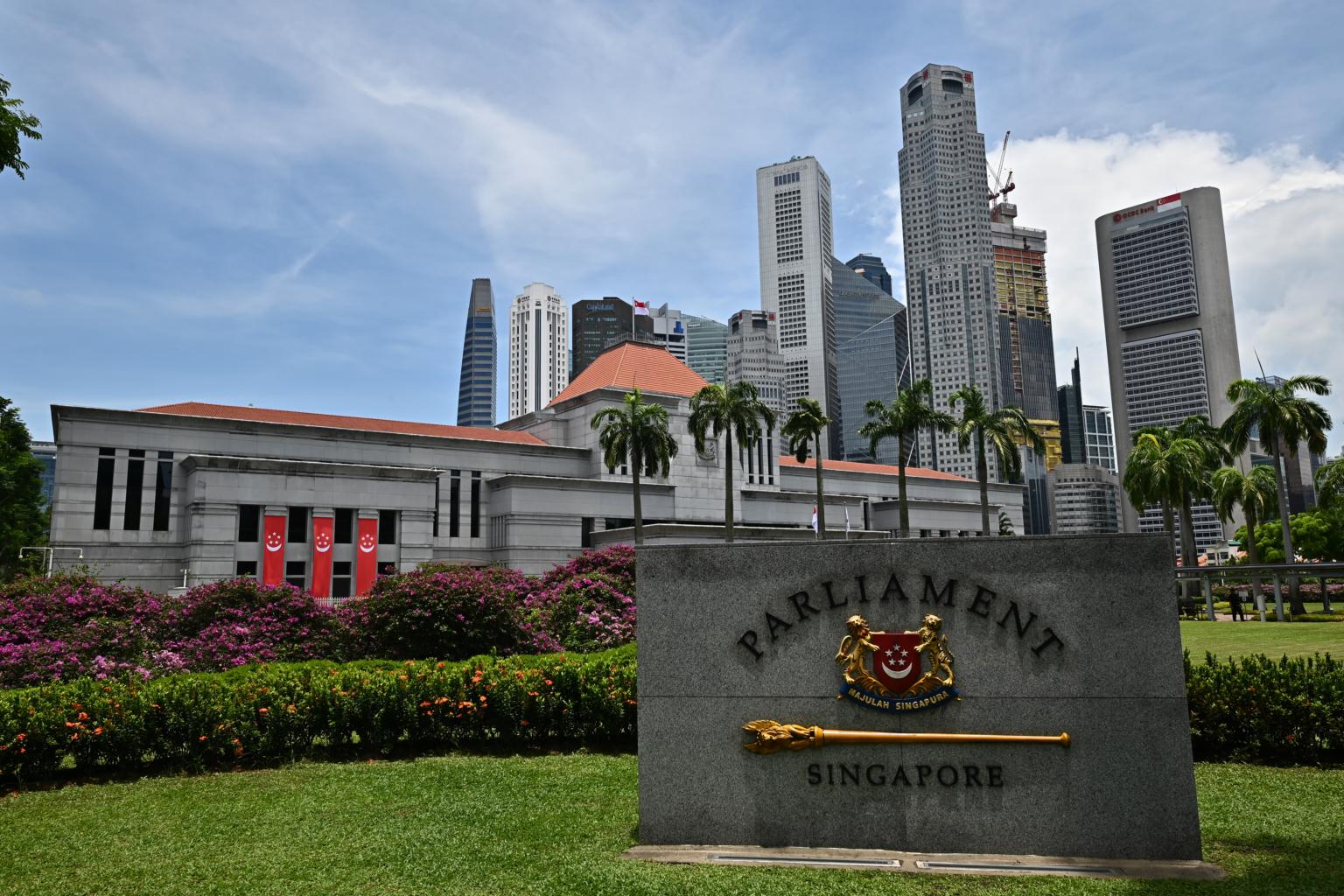Fugitives can consent to extradition under proposed changes to modernise Singapore's law
Sign up now: Get ST's newsletters delivered to your inbox

In a Bill introduced on March 7, the Ministry of Law proposed various updates to the Extradition Act.
PHOTO: ST FILE
SINGAPORE - Fugitives wanted by foreign states will be able to consent to their extradition, which is in line with international practice, if proposed changes to Singapore's extradition law are passed by Parliament.
In a Bill introduced on Monday (March 7), the Ministry of Law (MinLaw) proposed various updates to the Extradition Act, the main piece of written law governing the extradition of fugitives to and from foreign countries.
"The Bill, when passed, will update and modernise Singapore's statutory extradition regime, aligning it with other leading common law jurisdictions and cement Singapore's role as a responsible global citizen," said the ministry in a press statement.
A modernised regime will strengthen the country's ability to facilitate extradition where justified, secure the return of fugitives who have committed an offence in Singapore, and ensure appropriate use of limited state resources for extradition, said MinLaw.
The proposals include the introduction of a mechanism for fugitives to consent to their extradition and waive full extradition proceedings.
This is not allowed under Singapore's current law.
Such a mechanism would save state resources and prevent fugitives from being detained longer than necessary in the Republic, said the ministry.
As a safeguard, a magistrate has to ascertain that the fugitive's consent is voluntary and inform the fugitive of the consequences of consent.
The Bill also proposes expanding the restrictions on surrendering a fugitive.
If passed, Singapore would be able to refuse extradition requests if a fugitive is convicted in his absence; if a fugitive is being prosecuted for military offences; if a fugitive only has a short jail term remaining; or if the prosecution of a fugitive in the requesting state is barred owing to a limitation period.
The wider range of restrictions is aligned with international practice and commonly found in modern extradition treaties, said MinLaw.
Another proposed change is making an offence extraditable if it attracts a maximum punishment of at least two years, subject to a list of excluded offences.
Currently, only offences listed under the Extradition Act are extraditable.
The shift to a threshold approach will bring Singapore in line with jurisdictions such as Australia, Britain, Canada and Malaysia, and make it easier to determine when an offence is extraditable, said the ministry.
Excluded offences include the production of false evidence under the Trade Marks Act.
The Bill also proposes a new mechanism that allows the Attorney-General to apply to the High Court to review a magistrate's decision not to commit a fugitive for extradition.
Another amendment seeks to simplify the procedure for admission of evidence to the court to justify the extradition of a fugitive.
This evidence is usually presented by way of affidavits, which can often be voluminous, said the ministry.
Singapore has extradition agreements with Germany, Hong Kong, Indonesia and the United States, and is also part of extradition arrangements with 40 Commonwealth territories, including Australia, Britain and New Zealand.
In the last 10 years, there have been four successful extraditions back to Singapore and eight successful extraditions from the Republic to the requesting state, said a MinLaw spokesman.
Canadian David James Roach was extradited from Britain in 2020 for robbing the Standard Chartered Bank, while Singaporean Andy Quek Sze Leng was extradited from Hong Kong in 2018 for his role in a SkillsFuture scam.
Meanwhile, Australian Christopher Elkhouri was extradited to Australia in 2018 for dealing in stolen property, while Indian national Hitesh Madhubhai Patel was extradited to the US in 2019 for fraud and embezzlement.


